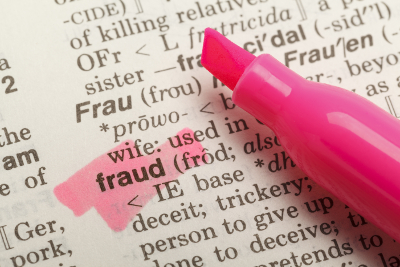Chapter 7 bankruptcy is said to be a liquidation bankruptcy that provides debtors with a fresh start. Bankruptcy under this chapter of the Bankruptcy Code allows debtors to discharge certain debt, which is why it feels like the debtor is starting anew. However, there are types of debt that cannot be discharged.
What kinds of debts can be discharged in bankruptcy?
Most debts can be discharged in Chapter 7 bankruptcy, but everything is subject to exceptions. There are a lot of debts such as private student loans and alimony that are usually not dischargeable. A discharge means the debts will go away and you are no longer responsible for paying those debts. Chapter 7 bankruptcy allows the discharge of unsecured debts, or debts that have not been secured by a lien. Secured debts include those where you have put property up as collateral.1 The lender can still take the collateral even if you declare bankruptcy.2
A creditor can also object to a discharge of a particular debt when you file for a Chapter 7 bankruptcy.3 Creditors can also object to a discharge to all of your debts in Chapter 7 bankruptcy if you are accused of committing fraud, such as transferring title or property to another person to avoid including it in the bankruptcy.4 The bankruptcy trustee can also object to a discharge if there is a valid reason behind the objection.
What are fraud debts?
There are a multitude of actions that could make a debt originate from fraud. Debts that are a result of fraud in a business are typically not something that can be discharged.5 Debts that are incurred because of some kind of fraud such as false pretenses or false representation are included in this category. Debts incurred through fraud are also nondischargeable in Chapter 13 bankruptcy. A fraud can originate from ill intent, fraud, or false representation.6
Can you discharge fraud debts?
It is possible. Section 523(a)(19) of the Bankruptcy Code does not allow discharge for debts in violation of federal or state securities laws and those that are connected with common law fraud from the purchase or sale of securities.7 There are times when business fraud debts leave innocent parties saddled with debts that cannot be discharged even in Chapter 7 bankruptcy. The Ninth Circuit Bankruptcy Appellate Panel held in Sachan v. Huh that if the debtor did not participate in the fraud, debts as a result of an agent or employee’s fraud may be discharged.8
In another Ninth Circuit case, In Re Sherman,A� an attorney who represented defendants in an SEC enforcement action was told to disgorge ill-gotten gains withdrawn from his trust account in a contingency case.9 The attorney filed for Chapter 7 bankruptcy and was granted a discharge and allowed a declaration that his obligation to disgorge funds had been discharged despite section 523(a)(1).10 Both the bankruptcy court and the Ninth Circuit agreed that section 523 was there to apply to wrongdoers and not people who owed a debt which the SEC was authorized to enforce, and that preventing discharge of debts for security-related wrongdoings only applied in cases where the debtor is responsible for such wrongdoing.11 Further, there have also been cases where the US Court of Appeals for the Ninth Circuit has held the bankruptcy court has the power to recharacterize debt as equity.12 This recharacterization should be to determine whether a transfer was fraudulent under section 548 of the Bankruptcy Code, which allows the bankruptcy trustee to avoid any transfer that is fraudulent within two (2) years before filing the date of the petition.13 11 U.S.C. A� 548.
For more information about discharging fraud debts in bankruptcy call to speak directly with the experienced Phoenix AZ bankruptcy lawyers at Ariano & Reppucci, PLLC.
[1] Kathleen Michon, Which Business Debts Are Discharged In Chapter 7 Bankruptcy? nolo.com, http://www.nolo.com/legal-encyclopedia/business-debts-discharged-chapter-7-bankruptcy-32415.html (last visited Jan. 14, 2015).
2 Id.
3 Kathleen Michon, Objections to the Bankruptcy Discharge, nolo.com, http://www.nolo.com/legal-encyclopedia/objections-the-bankruptcy-discharge.html (last visited Jan. 13, 2015).
4 Id.
5 Campbell & Coombs, Ninth Circuit BAP Protects Business Owners, arizonabankruptcylawyersblog.com (July 22, 2014), http://www.arizonabankruptcylawyerblog.com/2014/07/ninth_circuit_bap_protects_bus.html?utm_source=feedburner&utm_medium=feed&utm_campaign=Feed%3A+ArizonaBankruptcyLawyerBlogCom+%28Arizona+Bankruptcy+Lawyer+Blog%29.
6 Discharge, Exceptions to Discharge, and Objections to Discharge, govinfo.library.unt.edu, http://govinfo.library.unt.edu/nbrc/report/07consum.html (last visited Jan. 14, 2015).
7 Recent Seventh and Ninth Circuit Cases Affect Federal Equity Receiverships, allenmatkins.com (Feb. 1, 2012), http://www.allenmatkins.com/Publications/Legal-Alerts/2012/02/01_02_2012-Bankruptcy-Alert.aspx.
8 Campbell & Coombs, supra note 5.
9 Recent Seventh and Ninth Circuit Cases Affect Federal Equity Receiverships, supra note 7.
10 Id.
11 Id.
12 Ninth Circuit Holds That Debt Can Be Recharacterized As Equity, kattenlaw.com (June 5, 2013), http://www.kattenlaw.com/33097.
13 Id.


